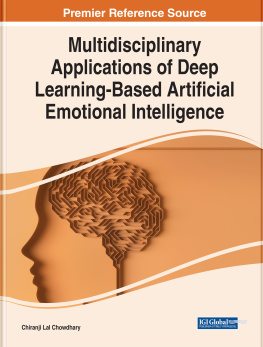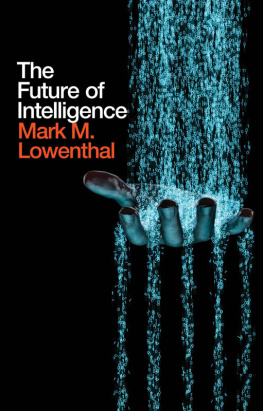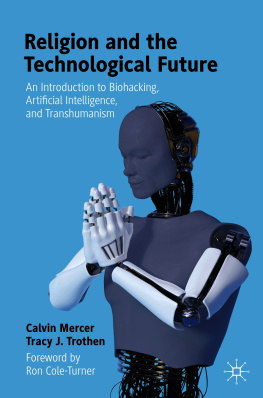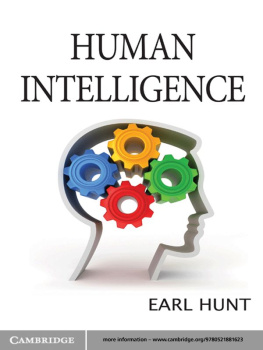The Science Masters Series
These books admirably achieve what the series sets out to do to explain exciting science clearly
Sunday Times
The whole series... manages to tell powerful stories very simply and very cheaply. What more could you want?
Science Now
The Science Masters series looks set to play a major role in the responsible popularisation of science
New Scientist
How Brains Think
In How Brains Think Mr Calvin takes us on an exhilarating intellectual journey... an exquisite distillation of his key ideas. Hes a member of that rare breed of scientists who can translate the arcana of their fields into lay language, and hes one of the best... Mr Calvin, so lyrical and imaginative in his presentation, draws you into his world of neural Darwinism and inspires you to read more
New York Times
Calvin is fizzing with ideas and this is a provocative, stimulating book
Sunday Times
Dedicated to my late futurist friend, Thomas F. Mandel (19461995), whose memes live on.
HOW BRAINS THINK
Evolving Intelligence, Then and Now

WILLIAM H. CALVIN

CONTENTS


Helpful discussions with Derek Bickerton, Iain Davidson, Daniel C. Dennett, Stephen Jay Gould, Katherine Graubard (who suggested the books title), Marcel Kinsbourne, Elizabeth Loftus, Jennifer Lund, Don Michael, George Ojemann, Duanne Rumbaugh, Sue Savage-Rumbaugh, Mark Sullivan, and the late Jan Wind are reflected at multiple places in this book. Bonnie Hurren kindly pointed me to the Piagetian definition of intelligence.
The editors at Scientific American, John Rennie, Jonathan Piel, and Michelle Press, were very helpful (a short version of my intelligence argument appeared in their Life in the Universe special issue of October 1994; well-tuned paragraphs from it are scattered throughout this book), as was Howard Rheingold at Whole Earth Review (the last part of the last chapter appeared in their Winter 1993 issue).
Among the others I must thank for their editorial suggestions are Lynn Basa, Hoover Chan, Lena Diethelm, Dan Downs, Seymour Graubard, the late Kathleen Johnston of San Francisco, Fritz Newmeyer, Paolo Pignatelli, Doug vanderHoof, Doug Yanega, and The WELLs writers conference.
Blanche Graubard, as usual, edited the book before it was inflicted on the publisher, and I have again profited from her good sense and style. Jeremiah Lyons and Sara Lippincott edited the book for the Science Masters series and made many excellent suggestions for revision.

It is perfectly true, as philosophers say, that life must be understood backwards. But they forget the other proposition, that it must be lived forwards.
Sren Kierkegaard, 1843
All organisms with complex nervous systems are faced with the moment-by-moment question that is posed by life: What shall I do next?
Sue Savage-Rumbaugh and Roger Lewin, 1994
Piaget used to say that intelligence is what you use when you dont know what to do (an apt description of my present predicament as I attempt to write about intelligence). If youre good at finding the one right answer to lifes multiple-choice questions, youre smart. But theres more to being intelligent a creative aspect, whereby you invent something new on the fly. Indeed, various answers occur to your brain, some better than others.
Every time we contemplate the leftovers in the refrigerator, trying to figure out what else needs to be fetched from the grocery store before fixing dinner, were exercising an aspect of intelligence not seen in even the smartest ape. The best chefs surprise us with interesting combinations of ingredients, things we would ordinarily never think went together. Poets are particularly good at arranging words in ways that overwhelm us with intense meaning. Yet were all constructing brand-new utterances hundreds of times every day, recombining words and gestures to get across a novel message. Whenever you set out to speak a sentence that youve never spoken before, you have the same creativity problem as the chefs and poets furthermore, you do all your trial and error inside your brain, in the last second before speaking aloud.
Weve lately made a lot of progress in locating some aspects of semantics in the brain. Frequently we find verbs in the frontal lobe. Proper names, for some reason, seem to prefer the temporal lobe (its front end; color and tool concepts tend to be found toward the rear of the left temporal lobe). But intelligence is a process, not a place. Its about improvization, where the sweet spot is a moving target. Its a way, involving many brain regions, by which we grope for new meanings, often consciously.
The more experienced writers about intelligence, such as IQ researchers, steer clear of the C word. Many of my fellow neuroscientists avoid consciousness as well (some physicists, alas, have been all too happy to fill the vacuum with beginners mistakes). Some clinicians unintentionally trivialize consciousness by redefining it as mere arousability (though to talk of the brain stem as the seat of consciousness is to thereby confuse the light switch with the light!). Or we redefine consciousness as mere awareness, or the searchlight of selective attention.
Theyre all useful lines of inquiry but they leave out that activism of your mental life by which you create and edit and re-create yourself. Your intelligent mental life is a fluctuating view of your inner and outer worlds. Its partly under your control, partly hidden from your introspection, even capricious (every night, during your four or five episodes of dreaming sleep, it is almost totally out of control). This book tries to fathom how this inner life evolves from one second to the next, as you steer yourself from one topic to another, as you create and reject alternatives. It draws from studies of intelligence by psychologists, but even more from ethology, evolutionary biology, linguistics, and the neurosciences.
There used to be some good reasons for avoiding a comprehensive discussion of consciousness and the intellect. A good tactic in science, especially when mechanistic-level explanations dont help structure your approach to a fuzzy subject, is to fragment the problem into bite-sized pieces and that is, in some sense, whats been going on.
A second reason was to avoid trouble by camouflaging the real issues to all but insiders (maintaining deniability, in the modern idiom). Whenever I see words that have everyday meanings but also far more specific connotations used only by insider groups, I am reminded of code names. Several centuries ago, an uncamouflaged mechanistic analogy to mind could get you into big trouble, even in relatively tolerant Western Europe. Admittedly, Julien Offroy de La Mettrie didnt merely say the wrong thing in casual conversation: this French physician (17091751) published a pamphlet in which he wrote of human motivations as if they were analogous to energy-releasing springs inside machines.












